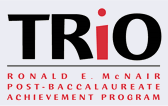Mentor
Clarence Coleman, Ph.D.
Major
Sociology
College
College of Arts and Sciences
Department
Sociology and Anthropology
Abstract
This research examines whether African crude oil and natural gas liquids (NGLs) sales revenue deviates from expected sales revenue based on market prices. The deviation may be the result of International Oil Companies (IOCs) transferring a significant amount of crude oils and NGLs to other regions of the world to be turned into finished goods, due to the lack of refining capacity in Africa. This situation suggests that the African region’s governments are placed at a significant disadvantage from profiting off the crude oils and NGLs reserves in their countries because they cannot turn the majority of crude oils and NGLs into finished goods within their country. Thus, IOCs use the accounting concept known as transfer pricing, which allows for goods to be transferred between related enterprises where the integrity of whether the goods were sold at fair market value can be questioned. The use of transfer pricing enables an IOC to shift taxable revenue to different countries where the IOCs operate. IOCs would want to shift revenues from one country to another in an effort to lower their global tax liability. They would accomplish this by shifting revenues from higher tax countries to lower tax countries, and unethical uses of transfer pricing would allow them to achieve this task. This research seeks to determine if revenue is being transferred out of or into Africa during the downstream function of the IOCs’ operations.
Recommended Citation
Moore, Justin; Harold, Harold; and Coleman, Clarence
(2015)
"Transfer Pricing Equity: An Examination of Reported Revenue versus Expected Revenue,"
The Winthrop McNair Research Bulletin: Vol. 1, Article 11.
Available at:
https://digitalcommons.winthrop.edu/wmrb/vol1/iss1/11


